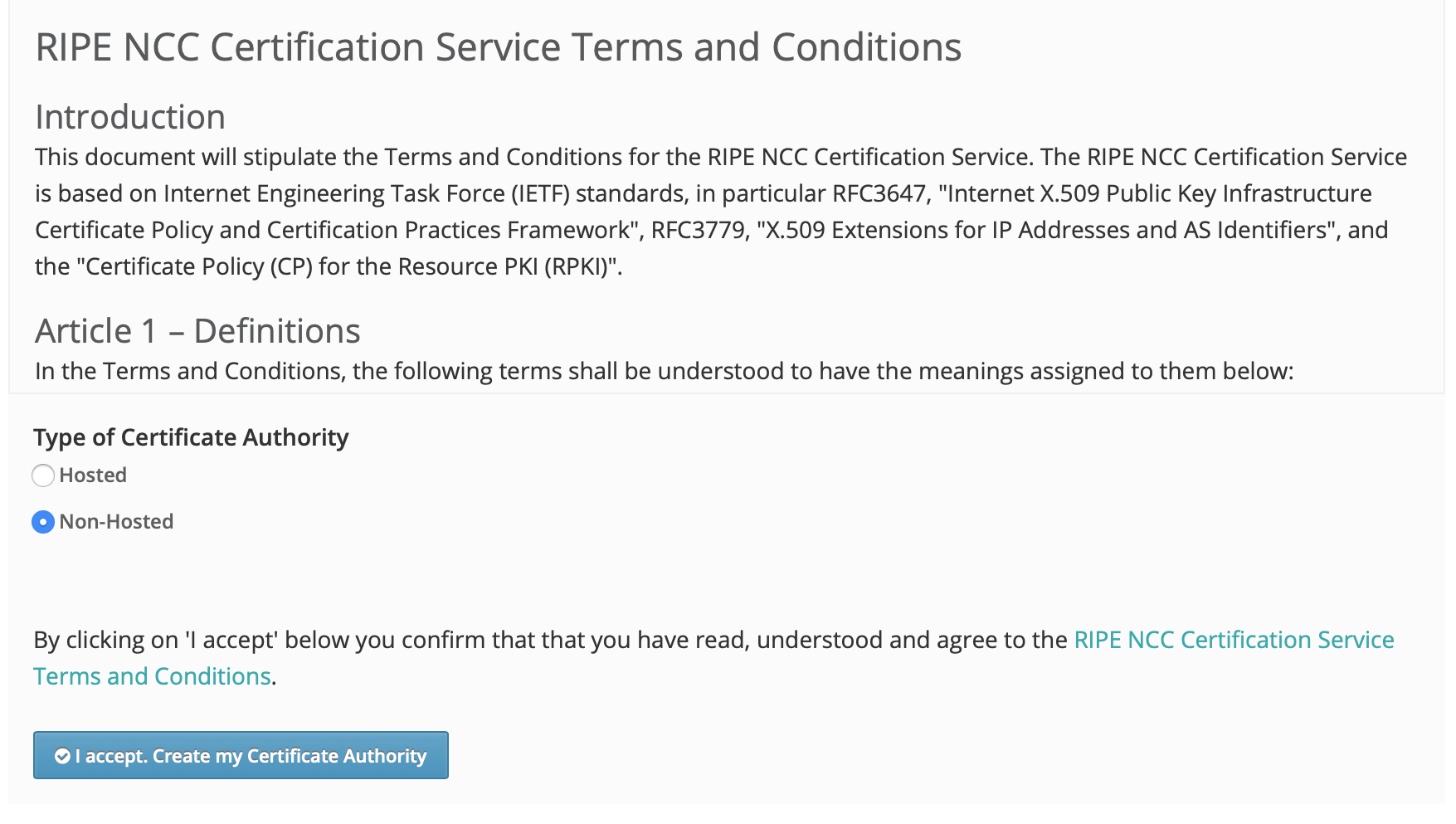RIR and NIR Interactions¶
In almost all cases, you will interact with one or more Regional Internet Registries (RIRs) or National Internet Registries (NIRs) when setting up delegated RPKI.
The fundamental principle is the same with each of them: the RIR or NIR needs to establish who you are, which resources you are entitled to and where your RPKI certificate and ROAs will be published.
Your identity, permissions and entitlements are all managed by the registry and exposed via their respective member portals. The rest of the information is exchanged in two XML files. You will need to provide a child request generated by Krill, and in return you will receive a parent response that you need to give back to Krill. See Parent Setup for more details.
Hosted Publication Server¶
Your RIR or NIR may also provide an RPKI publication server. You are free to publish your certificate and ROAs anywhere you like, so a third party may provide an RPKI publication server as well. To use this service you will need to do an additional exchange. You need to generate and provide a publisher request file and in return you will receive a repository response.
Using an RPKI publication server relieves you of the responsibility to keep a public rsync and web server running at all times to make your certificate and ROAs available to the world.
Of the five RIRs, APNIC and ARIN currently offer RPKI publication as a service for their members, upon request. Most other RIRs have it on their roadmap. NIC.br, the Brazilian NIR, provides an RPKI repository server for their members as well. If you need to publish your certificate and ROAs yourself, follow the steps described in the Running a Publication Server section.
Member Portals¶
If you hold resources in one or more RIR or NIR regions, you will need to have access to the respective member portals and the permission to configure delegated RPKI.
- AFRINIC
- APNIC
- ARIN
- LACNIC
- RIPE NCC
Most RIRs have a few considerations to keep in mind.
AFRINIC¶
AFRINIC have delegated RPKI available in their test environment, but it’s not operational yet.
APNIC¶
If you are already using the hosted RPKI service provided by APNIC and you would like to switch to delegated RPKI, there is currently no option for this with MyAPNIC. Please open a ticket with the APNIC help desk to resolve this.
Please note that APNIC offers RPKI publication as a service. It is highly recommended to make use of this, as it relieves you of the need to run a highly available repository yourself. We provide a step-by-step guide to set this up.
ARIN¶
If you are already using the hosted RPKI service provided by ARIN and you would like to switch to delegated RPKI, there is currently no option for this with ARIN Online. Please open a ticket with the ARIN help desk to resolve this.
Please note that ARIN offers RPKI publication as a service. It is highly recommended to make use of this, as it relieves you of the need to run a highly available repository yourself. We provide a step-by-step guide to set this up.
LACNIC¶
Although LACNIC offers delegated RPKI, it is not possible to configure this in their member portal yet. While the procedures are still being defined, please open a ticket via hostmaster@lacnic.net to get started.
RIPE NCC¶
When you are a RIPE NCC member who does not have RPKI configured, you will be presented with a choice if you would like to use hosted or non-hosted RPKI.

RIPE NCC RPKI setup screen¶
If you want to set up delegated RPKI with Krill, you will have to choose non-hosted. If you are already using the hosted service and you would like to switch, then there is currently no option for that in the RIPE NCC portal.
Make a note of the ROAs you created and then send an email to rpki@ripe.net requesting your hosted CA to be deleted, making sure to mention your registration id. After deletion, you will land on the setup screen from where you can choose non-hosted RPKI.